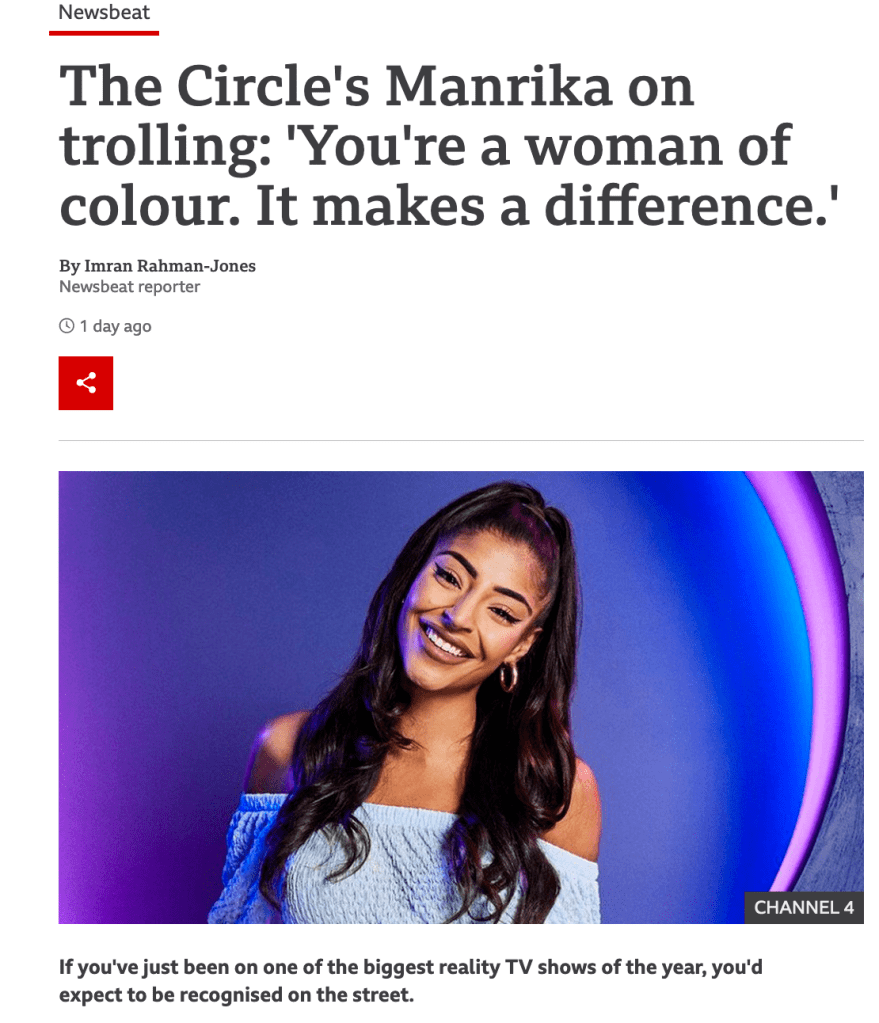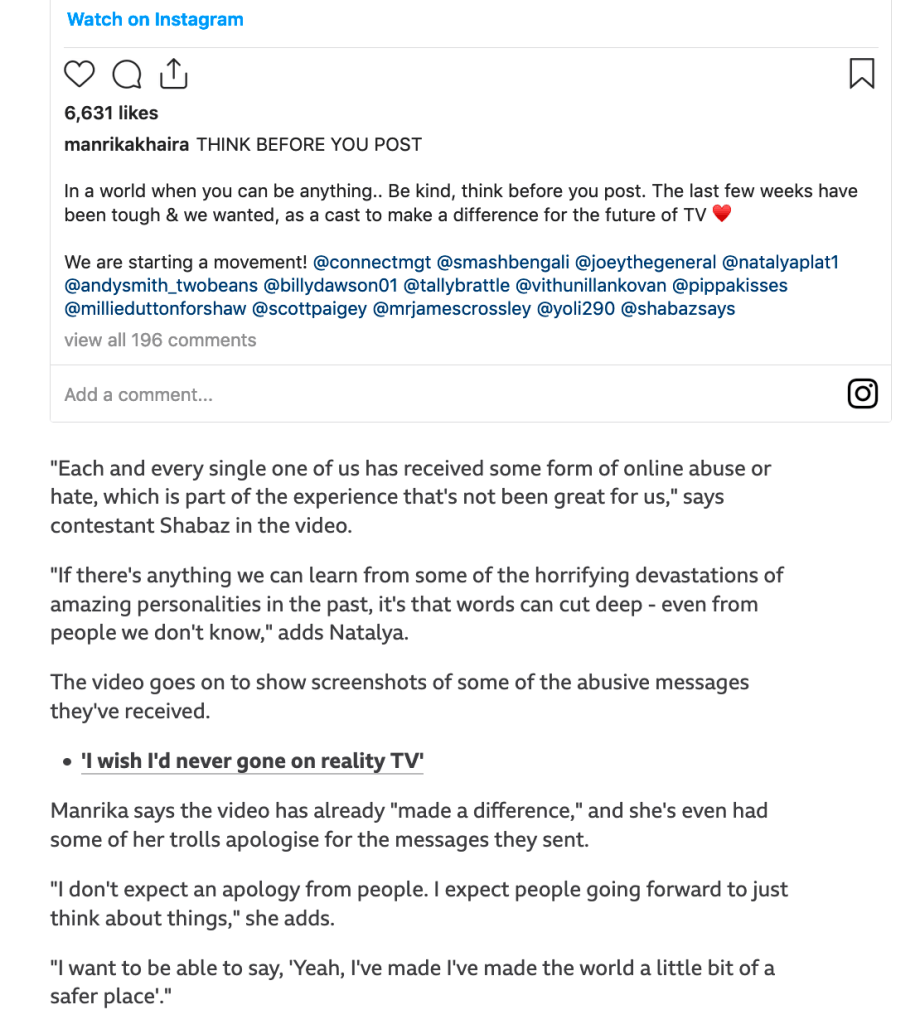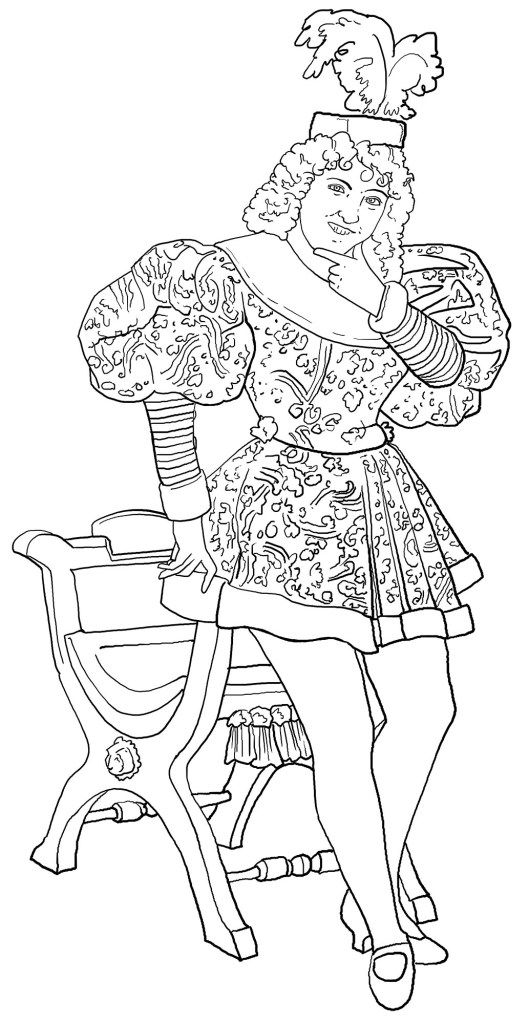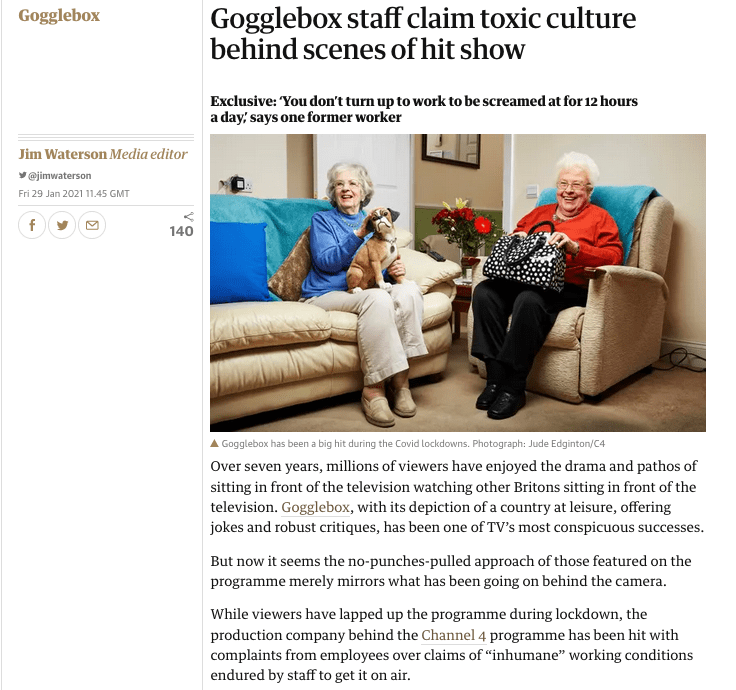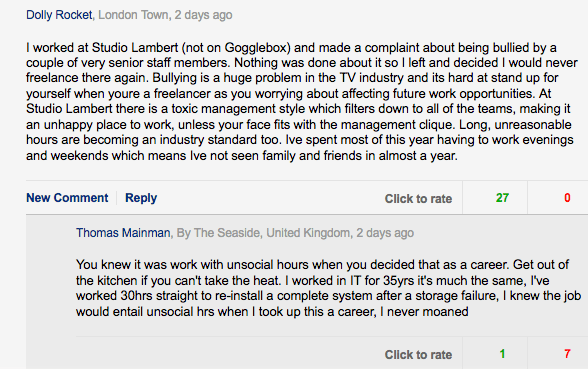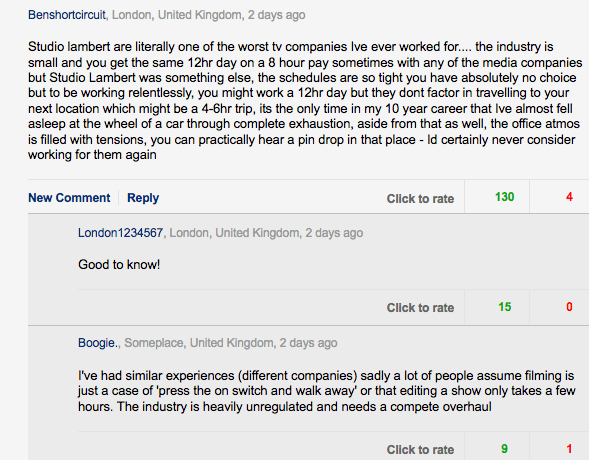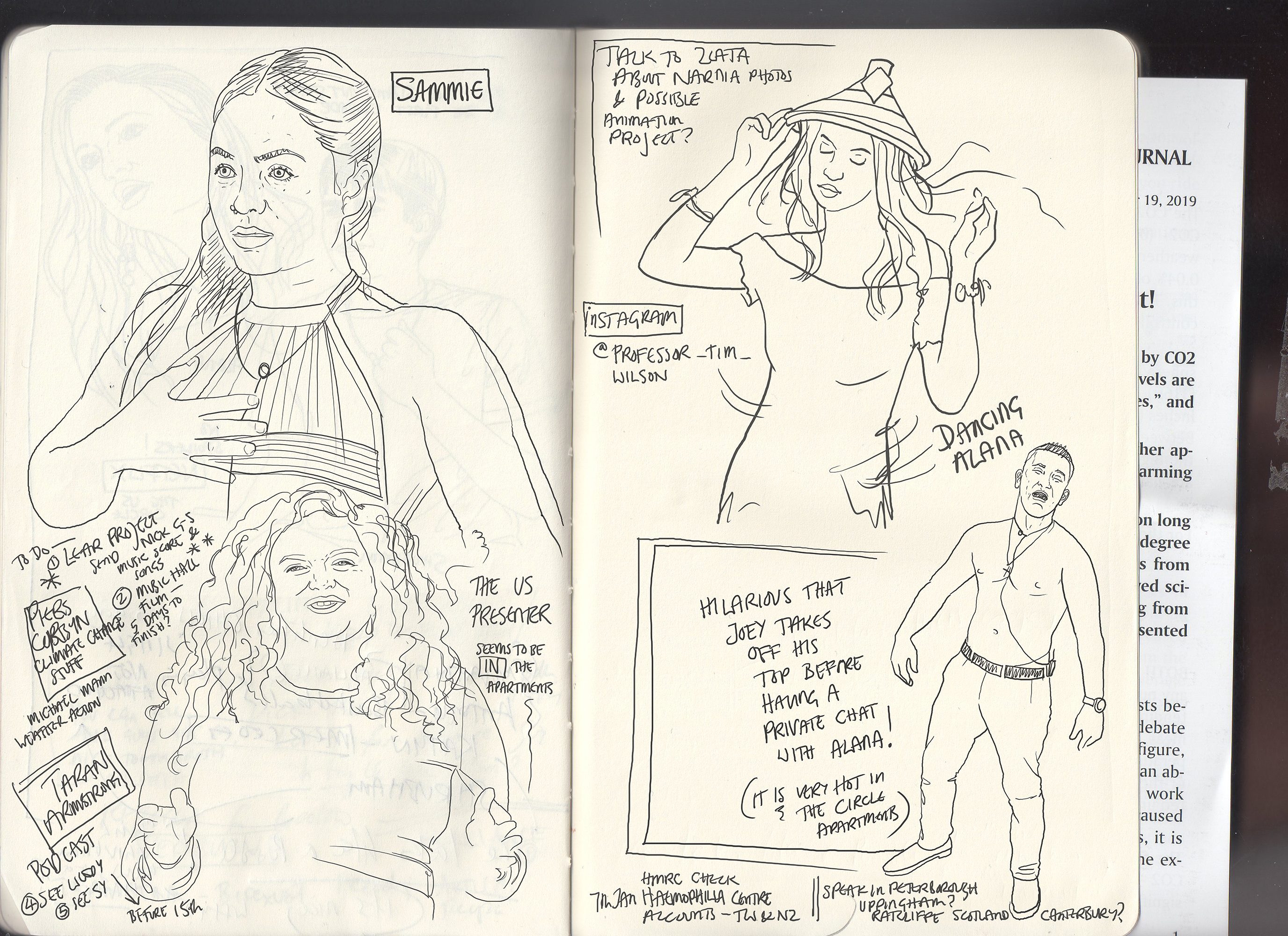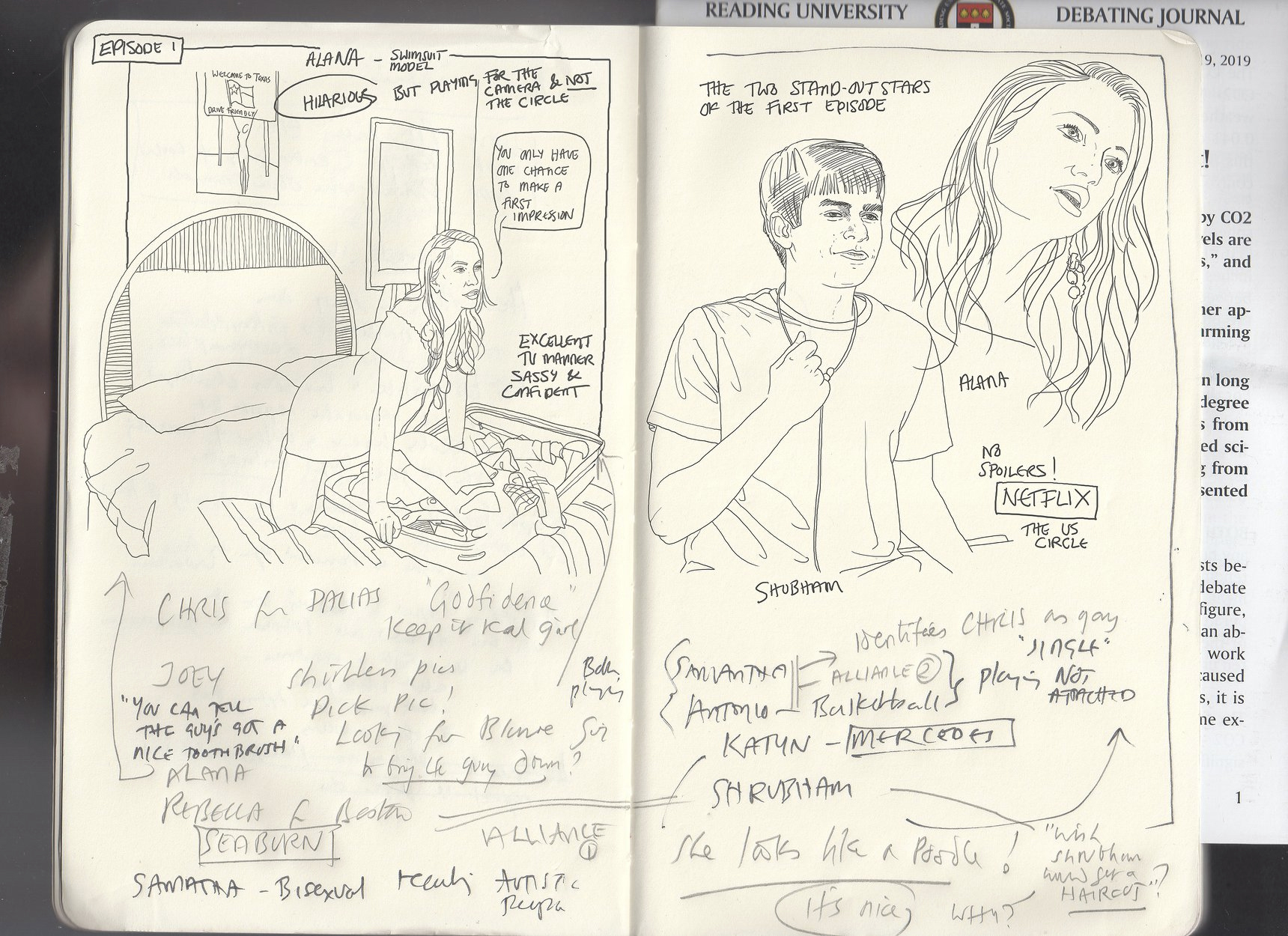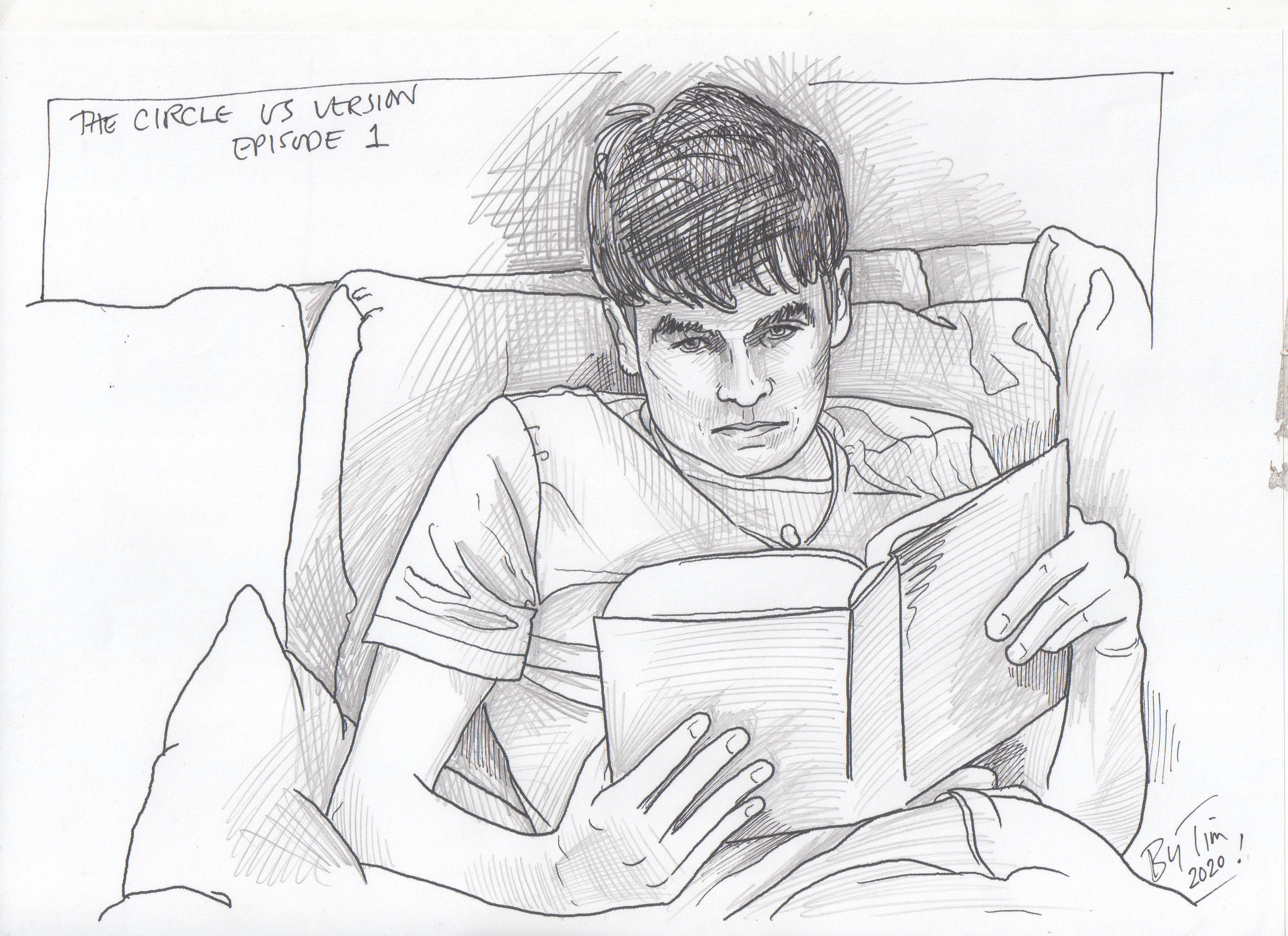An Australian academic Dr Godfrey White has written:”There is enormous potential for risk, and nobody is really following these people up or watching over their welfare,” He was talking about Reality TV. “An industry standard should be created and producers should be held liable should anything happen.”
—————–
I was directed today to a very interesting article about Post Traumatic Stress Disorder which listed a range of symptoms. With the exception of Alcohol abuse, I recognised every one of them.
PTSD was a subject that I thought I knew as 20 odd years’ ago, I found myself dealing with the aftermath of a very traumatic situation. My partner, Necati had been introduced to me and over the first few months that we were together I began to piece together the alarming story that had brought him to Athens. He had been held in captivity by the Greek navy in Hania on Crete and after a while, detained in a cage under the open sun, he was taken to the bathroom, raped and badly beaten.
Necati and I did not have a common language and, therefore, the details of the case took time to emerge. Once I learnt what had happened, however, I was determined to get justice and to try to help him. In the process, we were met with the most appalling wall of bureaucracy and I am afraid I have had little patience for this sort of rubbish ever since. Actually, I think we have surrendered so much more in the last 20 years to the bullies of bureaucracy and this has been made much worse by the recent lockdown. I have, in fact, for example, been without a bank account now for over a month. It is not for want of trying to access the service. In the end, it boils down to the simple fact that what on offer is not delivered, but that failure is masked by the most appalling runaround of endless telephone calls and emails that never seem to go anywhere. It reminds me alot of my time in Greece 20 years’ ago. In both Greece and later Russia, I found there were masters of the sort of mindless bureaucracy that simply stops progress.
I looked at the list of symptoms and I wondered if either he or I suffered from PTSD after we got back from Greece. Certainly, he received very little care when he got back to the UK which is frankly disturbing given the high profile we now accord mental health. Thank God for Princes William and Harry!
Here is the list:
Hypervigilance
intense physical reminders of the event
irratability
irrational and intense fear
(alcohol abuse)
hyperacusis
difficulty concentrating
lacrymosity
panic
mood swings/ depression
insomnia
anger
tense muscles
work and relationship problems
memory issues
loss of interest
sense of a limited future
emptiness
avoidance of people and places
isolation
frequent periods of withdrawal
flashbacks
nightmares
distress
feeling suicidal
self harm
suspicious of others/ blaming others
guilt/ shame
weight issues
exhaustion
unexplained
aches and pains
overreactions to minor situations
fear of being alone/ agoraphobia
cortisol issues, skin complaints. scarring, tinitus
I am not sure I personally suffered that much after we got back from Greece. I was very focused on taking the case forward and I was busy writing to our legal team and to politicians in Greece and the UK. We amassed a huge number of responses from a very interesting range of people. It is touching how often people who are very important and busy, at the heart of government, take the time to write a letter explaining that they cannot do much but wishing well: it means so much. We do not need a solution- we need support.
In the wake of Necati’s case, I think my patience wore thin particularly with bureaucrats. I have learnt to deal with this but recently, after “the Circle”, I have found it has got difficult again. I am intensely aware of the inadequacy of the system. I want to change it. Maybe that is unrealistic.
In the year before I met Necati, I found myself at gunpoint in my own home and it was a frightening and maturing event. I had never really seen a gun before. I remember my father had a couple of plush purdy’s but for all his efforts to persuade me to go shooting, I whimped out and put my fingers in my ears. there was a farmer down the road who used to take me off with a single-bore shotgun and I enjoyed being around with him. I remember beating the pheasants out for him and I think I may even have tried a few shots- at targets not birds. But it was not my thing and by the time I got to Ratcliffe and was faced with joining the CCF, I was determined never to fire a gun.
I remember very well that the physics’ teacher, called Robinson, made a great fuss and poked fun at me when I objected to firearms: he wanted me to use the term “rifle”. I remember saying in a great meeting with all my peers around me that “a gun is a gun ad I will not handle one.” So they scowled and put me in the Scouts, which I hated just as much. I do not think Mr Robinson was intentionally unkind. I think it was that he had never met a boy who did not want to play with a gun and was prepared to say so.
But from quite an early age, when it has come to the crunch, I will speak out.
After the incident in my home, when I stood in front of a small gun intended to kill a kurdish paramilitary called Arif, I found myself opening the door to another group of paramilitaries who said they had been sent by the Greek navy to “take us out.” Oddly, they were led by the same Arif, so I gave them tea and told them to park their guns in the corner. “Would you like milk?” I remember very clearly asking them. There was a further incident when people came to our house with guns and necati and I hid behind a cabinet and waited for them to go away.
All of that should by rights have generated some sort of PTSD, but I am not so sure it did- not in me anyway. Certainly, I had nightmares and woke Necati up regularly with strange nocturnal behaviour. It died down for a few years but I gather it has started up again more recently. Necati calls it “the entertainment”. Necati, in turn, would have great mood swings and take against individual people – it has had lasting and uncomfortable implications.
I like to think that, like the great broadway and hollywood star, Will Rogers, “I never met a man I didn’t like.” It’s not quite true. And I know very well that I can happily accept the fact that I dislike someone’s views (intensely) and, at the same time, actively look forward to meeting them. This would genuinely be my attitude to Nigel Farage so I was disappointed when, after “the Circle”, I was stopped from participating in a show for the BBC when it was hinted I would have lunch with Anne Widdicombe. Of course, I know there are people who dislike me- alot. And I am riddled with guilt and self-doubt about how that ever happened. Generally, though, I find once I meet someone, it is often impossible for me to hold a grudge whatever they may think of me. We may not quite become bosom buddies but I can generally elicit a smile or a twinkle in the eye and that humanity is enough for me. Who cares if they disagree with me! Life is too short to spend the time persuading everyone to accept my point of view. And if for ten minutes I accept someone else’s views, well, there are then ten minutes when I have asked myself what it is like – it’s my effort at empathy. And who knows, when I think about it, they might have been right all along. There’s thought for the humility tract!
I am very proud that after we took Greece to the European Court of Human Rights, and won- and that I still remain friends with people who were loosely involved in the ordeal. And I have done my best to keep in touch with my many Greek friends.
I hesitate to go back of course, just as today I equally hesitate to go back to Russia (because of their heinous new laws against gay people). I am optimistic, but not stupid. But Greece remains my spiritual home even if I never set foot again on its soil.
And that brings me to reality tv and PTSD. This is the bit that is buried deep in the article that only the persistent will ever bother reading! Because I have PTSD. Finally, after all these years and so many adventures, I have all the symptoms. It is remarkable. I have more symptoms than Necati had or has! I am a wreck!
I know that some days I feel immersed in exhaustion and I struggle to get things done. But I have years’ of training, firstly as a monk and then as an animator and I can generally get down to some project or other, often of my own devising. I have tried to fill the last few months with creativity, publishing my efforts on youtube and instagram but always trying to push the envelope technically.
I rarely sleep. I fret over a multitude of nonsense or I write (like this: it is now 5.15 am).
Yet, so far, I have managed to pull myself together for my regular tuesday podcasts and the occasional live instagram session. It is really nice to interact and it makes me feel there is still a purpose in what I do.
I rarely go out. I try to keep busy, because if I stop, there are memories and thoughts.
But the flashbacks seem to be spread over a long period and the turmoil of the last 12 months seems to have unearthed lots of nonsense in my head about everything, all the way back to my childhood and being bullied at school by my art teacher. Accordingly, I have turned that into a project and, on the advice of a very astute Australian academic, I have started writing and a proper book is finally emerging.
There are three people who have addressed some of the issues that I have identified in my research into the phenomenon of reality tv. They are all Australian. Australia is certainly the place where there has been advances in the study of Reality tv as a serious phenomenon. (Though I think they have not got it right either – or yet) I must confess here: I had never watched the genre before I was contacted by “the Circle” production – not even “Strictly!” But since coming out of the circle, I have made it my mission to watch as much as I can tolerate and to talk to people who have been in some of the principle shows.
The experience, for the most part has certainly scarred them. It has not been easy for them and it is not something I would ever willingly recommend. Of course, people ask me on instagram live what they should do when they apply, or whether they should apply and I cannot quite bring myself to say unreservedly, “don’t”, especially when they go on to tell me that I had inspired them. I try to emphasise the positives: certainly if you are determined, apply and go on the show- you will have a great time filming the show but make sure, I advise them, that you secure a good agent before you start filming (that is easier said than done); make sure you have independent professional support because that is what I lacked and I still lack that. Talking to others, I realise that the lack of professional support from people who understand the industry and who are independent of the production is the common denominator – a sense of loss and confusion that follows when you are no longer the focus of a tv show. In the case of the more intense shows, like “Survivor” and “Big Brother” where contestants have been under observation for a protracted period of time, there is a feeling that there is no more control. Our life was minutely managed and now that is suddenly taken away. We yearn for that control and respond absurdly with great pleasure to anyone who tells us what to do. Just as we did in “captivity”.
Again and again, I hear of people coming out of these shows who are manipulated into making very bad decisions. This is quite different from the madness that follows those contestants who were painted badly in the show- who go on to be abused in pubs (like Lottie Lion the other day, and like James/ Sammie who was sent death threats after “the Circle” finished), whose real life is made a nightmare because they embraced the dream of being on the telly, because they followed direction from the producers and because they put themselves out there- because people in the street think they “know them”. They do not. This is a manufactured image. It is not reality.
We know TV can be abusive. I was inspired by the lead Stephen Lambert gave when he started the studio that produced “The Circle.” The story is covered in a guardian article of 2008 which descibed how he resigned from RDF Media over what was then called Queengate, that is the rediting of a sequence to sex up a sequence where the queen was being photographed by Annie Liebovitz. While RDF was exonerated by the Wyatt enquiry, Lambert remained concerned that a scene had been edited out of order in a sensational trailer to give the impression that the Queen was walking off in a huff. When it came to Reality tv production, I felt I was, therefore, in much better hands than most. The people who were producing “the circle” had a moral compass.
But much Reality tv has been about deceiving the viewer and exploiting te talent. Because of contracts and secrecy, there is very little serious work done about what is a very popular form of entertainment, and there is very little effective governmental control. This is the Wild west of modern tv.
When people complain about the way they have been treated, we hear the refrain, “Oh you knew about the show before you applied to be on it!” So it is your fault. Yet, in my experience, the majority of contestants in a great range of programmes have been scouted and head-hunted. there may be lots of applicants to participate on a show, but few of them will make it to the camera. the producers know what they want. They know exactly what will make good tv.
They know exactly how to do their job. they know at least how to produce the tv show. I question whether over the last 20 years there has been a great improvement in the way reality tv participants have been cared for.
Much of the better work about care is being tried in Australia. We are lagging behind messing around with pompous, meaningless, sententious, vacuous and frankly ridiculous documents like the one currently proffered by Ofcom as well as half-hearted Government committees blandly discussing the merits and control of what remains a largely unregulated growth industry in Television. (the document is here: https://www.ofcom.org.uk/__data/assets/pdf_file/0025/192580/further-consultation-protecting-participants-tv-radio.pdf)
Jamie Huysman started an organisation in 1992 called AfterTVCare. There is nothing like that here. Dr Michelle Callaghan has focused on the way people may reveal more than they want to on national tv and then have to live with the consequences. She talks about the exaggerations that can occur in editing, and the manipulation of the contestant’s image. Essentially, she draws attention to a key concept which, I think, needs more than just psychological support. It needs professional support- this is about a loss of control. That loss of control might begin on screen but it can also and often does continue off screen.
It is not just the people in the street who think they know you because you were seen on the telly. It is also about abusive contracts, manipulation and misinformation conducted by people who think they know what is best for you , or what they want you to have, or what they want you to stop having. I was appalled to hear, for instance, of the story of the first winner of “Survivor Borneo” and, indeed, to meet Richard Hatch. I think we got on tremendously but I was still horrified by the story he told me. Because of a muddle about whether production had paid tax on his $1million winnings, he was arrested and sent to prison where, because he refused to recognise that he had done anything wrong and because production failed to support him, he served 4 years. It made headlines. It kept the show in the papers but I think it was questionably ethical and it was certainly exploitative. Richard used very blunt anglo-saxon terms to describe the major producers of the show.
Prison or suicide? It should not be like that. Neither should people be so damaged by the experience of reality tv that they must face up to years of pyschiatric care and/or counselling to recover from the ordeal. Entertainment should not be so traumatic. So, I think the public would be appalled if they learnt that the only proposals made by Ofcom are self-regulation and more psychiatry.
It’s a niche interest and yet a major form of entertainment. And the stories about the problems of those who have been on reality tv commands headlines in the tabloids.
It is as if we are to endorse a form of gladiatorial spectacle where our entertainment is precisely at the expense of the entertainer’s health and well-being. This cannot be right. It is exploitative and it would make me as a viewer feel dirty and complicit.
Yet it has been ongoing for over 20 years, and I think over 40 suicides have been recorded. I can think of no other form of entertainment that is measured in such misery.
Of course there are forms of work that routinely offer psychiatric support. I am hoping shortly to visit the PTSD centre for the army and to talk to the magnificent people who run Help for Heroes, and their efforts to rehabilitate those who were injured in service. But the army also offers very astute professional support and training in skills and education.
The government is failing us in throwing the ofcom proposal at us and in closing the committee that was looking int recent scandals linked to the Jeremy Kyle show and to Love Island. If we do not do something, we are in danger of undermining public trust in this very vibrant form of television.
The Ofcom proposal was published in April. There is nothing in that document that was not already in force when I entered “the Circle”. “The Circle” anticipated Ofcom’s report and was already doing everything Ofcom would say it should be doing. So it begs the question- why am I suffering from PTSD?

